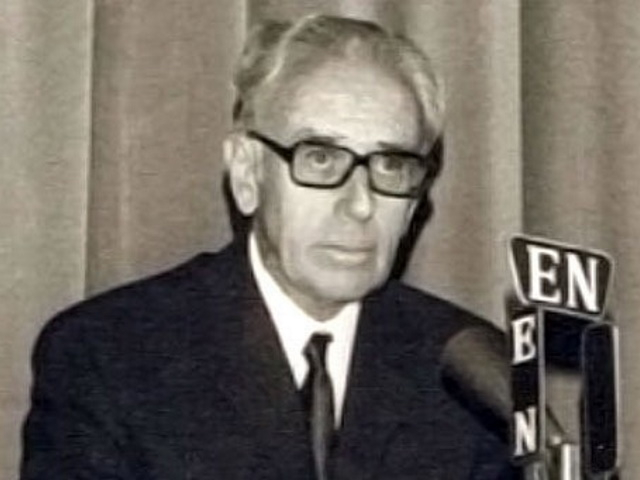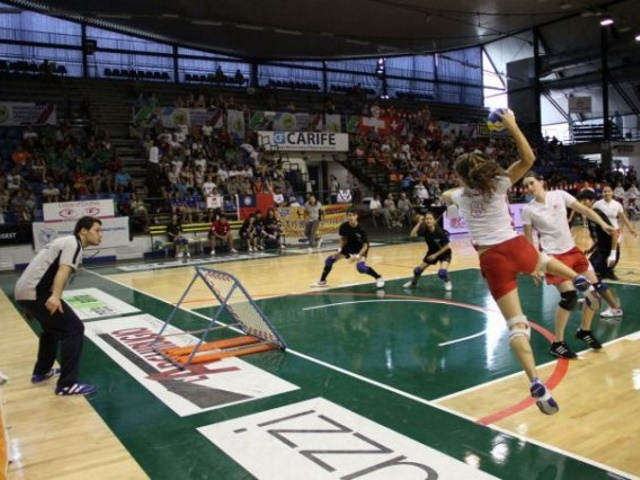Dr Hermann Brandt was an eminent Swiss biologist. Through his research into the effects of physical activities, the idea of Tchoukball had its foundation.
In Dr Brandt's time, and arguably now as well, many sports produced shocking injuries that stopped even the most resilient of athletes from participating further. After discussing these concerns in the book 'From Physical Education to Sport Through Biology', Dr Brandt presented his now-famous paper 'A Scientific Criticism of Team Games'. This won him the coveted award of the 'Thulin Prize', presented at the University of Lisbon on August 16th 1970.
Within this paper, Dr Brandt explored ways in which to construct the perfect team game whilst paying heed to his key concern of reducing injury. The practical expression of his ideas, stemming from his critical study of existing games, is the game we have come to know as TCHOUKBALL. This strange-sounding name comes from the 'tchouk' sound of the ball rebounding from a tchoukball frame. Dr Brandt felt this would be universally accepted. He died in November 1972, but not before he saw some of his high hopes realised.
Most games can be traced to humble beginnings and periods of slow development before becoming established as a national and international sport. Tchoukball is no exception. It has taken time and patience to convince people that this unique game is truly a "Sport for all", but now all the signs indicate that the message is getting across. During the 1980s, Taiwan took tchoukball to a different level, with substantial investment making it the 3rd sport of Taiwan and producing consistently over 200 teams for their national championships. Switzerland and Great Britain, 2 founder countries of the FITB (tchoukball's global governing body) cemented the international presence of tchoukball in Europe.
The 1990s saw a decline in tchoukball as a high-profile domestic incident in Japan meant the World Championships were cancelled at short notice.
However, in Geneva in August 2000, a World Tournament was held to mark the 30th anniversary of tchoukball's birth. Many players from around the world got together and participated. Shortly afterwards, competitive matches restarted across Europe and Asia. The advent of the internet meant that communications improved immensely over the next few years. Now countries across the world organise matches from small friendly games through to continental and world competitions, playing sport and making new friends - truly in the spirit in which tchoukball was created.


